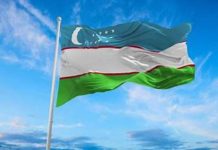Qamar Bashir
After Biden nominated Kamala Harris as his running mate, I authored an article titled “Trump vs Kamala Harris: What is for Pakistan.” At the time, deeply immersed in Pakistan’s political landscape, I predicted that although both candidates could be detrimental to our national interests, Kamala Harris might be slightly more favorable.
Now residing in Michigan, I have had the privilege of being admitted into a local Pakistani community’s WhatsApp group which provided me with a unique opportunity to better understand the perspectives of the Pakistani diaspora, particularly regarding national and international issues.
To gather their input, I posed a simple question in the group: “Harris or Trump—who do you think would be better for Pakistan?” The responses were heartfelt and candid. While most agreed that both could pose challenges to Pakistan’s interests, the majority leaned towards Kamala Harris, perceiving her as having a slight edge over Trump, particularly regarding the national interests of Pakistan and the Pakistani expatriate community. One member humorously remarked, “At least in the US, we don’t have ‘Ganjas,’ no immigrants, and no ‘lota’ politicians.”
One of our friends provided a detailed, articulate, and logical reply, which likely reflects the sentiments of many Pakistani expatriates. I am sharing his response here with only minimal edits, muting some harsher words:
“I will definitely be voting for the Harris/Walz team. I understand that many expats, especially those following the Muslim faith, feel resentment. However, I firmly believe Trump would have been far worse had he remained in the White House. While we can’t know for sure, his track record speaks volumes. From moving the US embassy to Jerusalem, effectively recognizing it as Israel’s capital (a move no president before him would have dared), to declaring himself the ‘King of Israel,’ Trump emboldened Netanyahu to take even more brutal action against Gaza.
Other issues important to me include women’s reproductive rights and the overturning of Roe vs. Wade, along with his attempts to dismantle the Affordable Care Act. These are key reasons I could never vote for him.
Family values are incredibly important to me, and Trump has consistently shown he doesn’t share them. He engaged in an affair with an adult film star shortly after his wife gave birth to his child and cheated on all three of his wives—Ivana, Marla, and Melania.
Trump often claims to have a plan for everything, but rarely delivers. Did you notice that he didn’t even mention ‘building the wall’ in his recent speeches? Instead, he’s resorting to absurd scare tactics, like claiming immigrants are eating the dogs and cats of Americans.”
The Pakistani-American community at large worry about Trump’s potential second term, which may strengthen the U.S.-India relations and create further complications for Pakistan, especially in terms of security and economic cooperation. On immigration, Harris’s support for comprehensive reform aligns well with the needs of Pakistani immigrants, while Trump’s restrictive policies, such as travel bans and stricter deportation measures, have been viewed as detrimental by many in the community.
Under the Biden administration, the U.S. has cautiously engaged with Pakistan in post-Afghanistan dynamics, particularly recognizing Pakistan’s influence over the Afghan Taliban. Security cooperation has been a key element, with U.S. aid aimed at bolstering Pakistan’s anti-terrorism capabilities. However, the U.S. remains wary of Pakistan’s complex relationship with militant groups like the Taliban. Economically, while direct trade agreements have not expanded significantly, the U.S. has provided development assistance and supported Pakistan in its efforts to stabilize its economy through institutions like the IMF..
At the multilateral level, Pakistan has worked with the U.S. on platforms such as the United Nations and the Financial Action Task Force (FATF), where Pakistan successfully exited the FATF gray list.
Additionally, China’s deepening economic ties with Pakistan through the China-Pakistan Economic Corridor (CPEC) have remained a point of concern for the U.S., although the Biden administration has refrained from pressuring Pakistan to pivot away from China and the priority has remained on maintaining security cooperation and economic stability in the region.
The Trump administration took a more confrontational stance toward China-Pakistan relations, particularly in opposing the China-Pakistan Economic Corridor (CPEC) as part of China’s Belt and Road Initiative (BRI). U.S. officials under Trump expressed concerns that CPEC would lead to unsustainable debt for Pakistan, viewing the project as part of China’s broader strategy to extend its geopolitical influence in South Asia. Trump’s administration also aligned closely with India, seeing it as a counterbalance to China, which further distanced Pakistan from the U.S. and deepened its partnership with Beijing. The focus was on limiting China’s regional influence, including in the military cooperation between Pakistan and China..
Domestically, issues like healthcare, reproductive rights, and economic stability also shape the community’s preferences. Harris’s stance on healthcare and social justice resonates with younger, progressive Pakistani Americans, while Trump’s economic policies attract some within the diaspora who favor conservative fiscal approaches.
Donald Trump’s policy of directly negotiating with the Afghan Taliban aimed to end U.S. involvement in Afghanistan, culminating in the 2020 Doha Agreement. The U.S. bypassed the Afghan government and engaged the Taliban as the primary power brokers, offering legitimacy in exchange for assurances against terrorism. This approach prioritized U.S. withdrawal and left Afghanistan’s future governance to internal actors. The strategy marked a shift from military engagement to diplomatic resolution, with the ultimate goal of exiting a long, costly conflict..
In contrast, Pakistan’s policy towards the Tehrik-e-Taliban Pakistan (TTP) is focused on internal security, dealing with a group that threatens the state’s sovereignty. Pakistan has used a mix of military operations and occasional peace talks, but these negotiations have not led to long-term stability. Unlike the Afghan Taliban, the TTP is a domestic insurgency ideologically opposed to Pakistan’s governance model. While military campaigns have weakened the TTP at times, the group continues to pose significant challenges, highlighting the more adversarial nature of Pakistan’s approach compared to Trump’s diplomatic efforts with the Afghan Taliban.
The Pakistani-American community’s views on the upcoming U.S. election reflect both national and personal concerns. The majority lean towards Harris as the more favorable candidate. Key reasons include her support for immigration reform, which aligns with the needs of Pakistani expatriates, and her more predictable foreign policy approach, particularly towards South Asia. Harris’s stance on healthcare, social justice, and her potential to balance U.S.-India relations also resonate with younger and progressive members of the diaspora. In contrast, Trump’s restrictive immigration policies, alignment with India, and his administration’s confrontational stance on China-Pakistan relations have left many in the community wary of a second Trump term.
Qamar Bashir
Former Press Secretary to the President
Former Press Minister to the Embassy of Pakistan to France
Former MD, SRBC, CEO, ATV

















